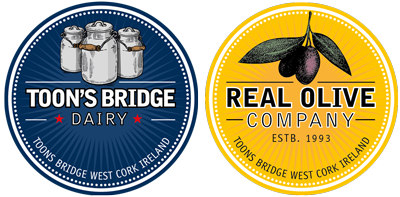Caciocavallo
This ancient stretched curd cheese has roots dating back to 2500 years, when Hippocrates boasted of the Greeks skill in making cheese.
Our friend and cheese maker Franco brought his passion for Caciocavallo to Toons Bridge. Franco has huge experience with the pasta filata (stretched curd) technique, which is used to make both Mozzarella and Caciocavallo.
Translated from Italian, Caciocavallo means "horse cheese". This is because historically, these cheeses were bound together with rope in pairs, and hung over wooden saddles to mature.
Like our Mozzarella and Scamorza, Caciocavallo is made from raw cow's milk with the addition of whey starters. This mixture is ripened and when ready after some hours, it is stretched in boiling water and manipulated by hand. The stretching process is very dynamic, as the curd is twisted, knotted and tightened.
There are many variations of caciocavallo, that use different animal rennets, and can be aged for many years. We make three distinct types that have very different characters. The flavours can be huge, as we harness all of the various raw milk bacteria to ripen the curd.
Dolce

Picante

Occhiato

Making Cacio Cavallo in the dairy










